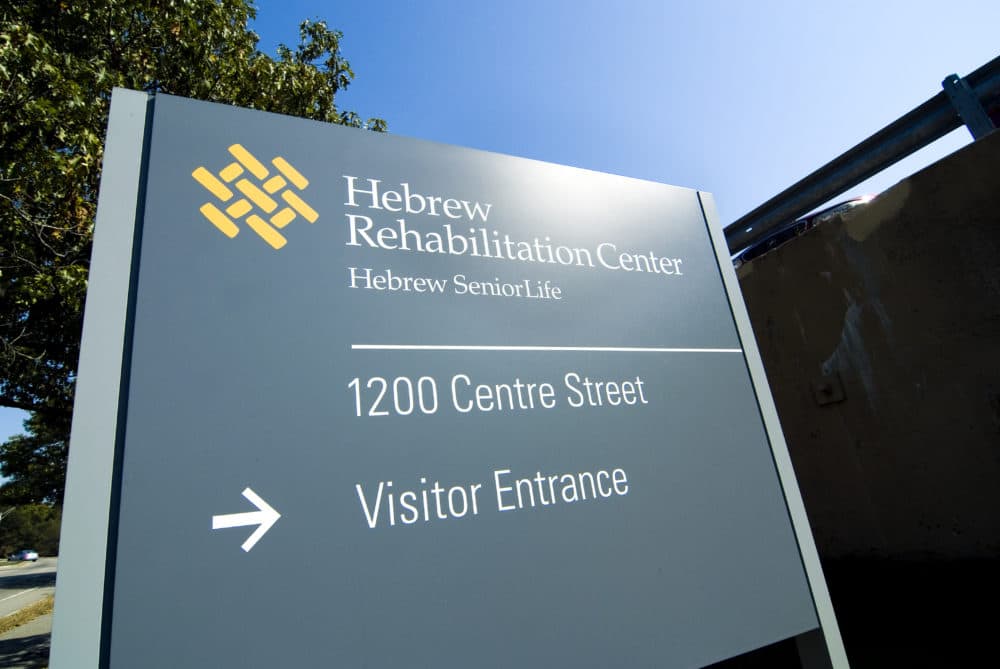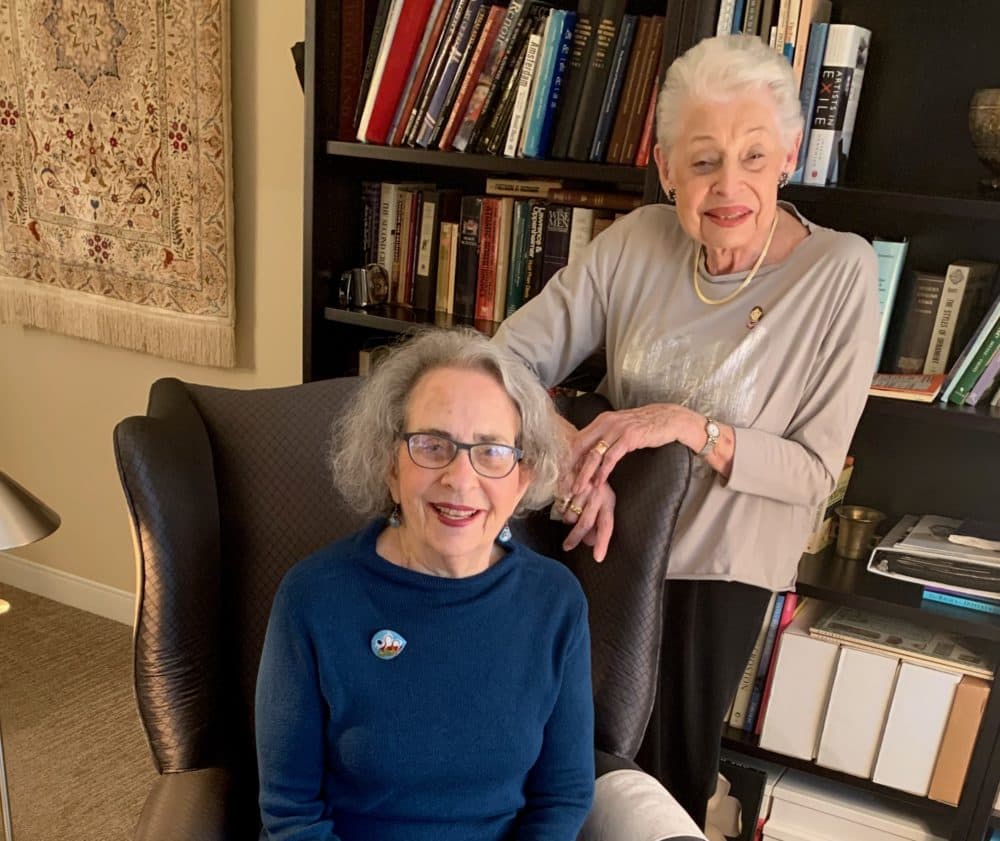Advertisement
Families And Residents Sad But Supportive Of Limited Visits At Senior Care Facilities

Several months ago, Brookline resident Ann Wise moved her 82-year-old father from his home in Ohio to Hebrew SeniorLife's rehab center in Roslindale. He has Parkinson's disease and needs a lot of care.
"My father can talk on the phone, but being in a wheelchair, if the phone is not close at hand, he can't always get to it," she says, adding that "cognitively," he is still his old self.
Wise says her father seemed to be doing well in his new environment, and that he particularly enjoyed being able to see his grandkids more often. And given his health and mobility problems, she was also relieved to have him close by — that was, until the coronavirus started spreading in the U.S.
Older adults, especially those with underlying health issues, are the most likely to get "very sick" if they contract the virus. And data from China, where the outbreak began late last year, shows that the death rate was highest for people 80 and older — 14.8% versus 1.3% in 50- to 60-year-olds.
"I was increasingly becoming uneasy about visiting, as much as within my heart, I wanted to visit," Wise says.
Her fears made sense. A nursing home in Seattle was the center of the country's first big outbreak — as of Monday, the Washington Post reports that 29 residents at the Life Care Center have died and another 30 have tested positive for COVID-19. Forty-six employees at the center have tested positive so far, according to a company spokesman.
The Massachusetts Department of Health hasn't reported any instances of COVID-19 in a Massachusetts long-term care facility, but over the last few weeks, as the number of positive cases ticked up around the state, providers like Hebrew SeniorLife began preparing for the worst. They've ramped up their protective measures — increased cleaning, stocked up on hand sanitizer and disinfectants, canceled in-house programming and began screening all visitors at the door.
Advertisement
On March 11, Massachusetts Health and Human Services Secretary Marylou Sudders and Department of Public Health Commissioner Monica Bharel mandated that nursing homes across the state implement new screening protocols, and the following day, the Executive Office of Elder Affairs issued similar guidance for assisted and independent living facilities.
Wise says that despite the inconvenience, she was happy to see these new measures put in place. But they also left her wondering if she should visit her father at all.
That question was answered for her when she went to see her father at the Hebrew Rehabilitation Center last Friday.
A security attendant stopped her outside and told her that unless her father was an end-of-life care patient, only staff and certain home health aides could enter the building to see him. Hebrew SeniorLife had sent an email to all families a few hours earlier with the news, but Wise hadn't seen it yet.
"Obviously I felt an instant sense of sadness that I wasn't going to be able to see my father, but in a strange way, I almost felt a sense of relief because it really did feel like the right thing for the facility to be doing," she says.
Lou Woolf, president and CEO of Hebrew SeniorLife, says limiting family visits was not an easy decision. But as the virus spread over the last few weeks, the balance his company tried to strike between preventing infection and meeting residents' social and emotional needs shifted.
"We were concerned there was going to be pushback. And we were wondering what the reaction would be," he says.
So far, he says it's been mostly positive.
"We as an industry are being incredibly vigilant on this topic," Woolf says. "We are taking it extremely seriously. And everyone I've talked to recognizes that balance."
Bob Huebscher of Lexington is one of those people — in fact, he thinks family and nonessential visitors should have been banned earlier. Huebscher's 93-year-old mother lives in the memory ward at one of Hebrew SeniorLife's facilities in the greater Boston area.
While he knows isolation is a risk, he thinks her safety is more important.
"My mom can still use the phone, she still calls us. We still talk to her every day, and if there were any sign that the isolation was having any adverse effect, we would figure out a way to deal with it," he says. "But so far that has not been an issue."

Esta Lupo-Stern lives in Cabot Park Village in Newton, which is owned by Benchmark Senior Living. Benchmark also began restricting visitors over the weekend, just hours before Gov. Charlie Baker announced a statewide ban on nonessential visitors.
"I think everybody [here] actually supports the decision, even reluctantly, because all you have to do is turn on television or the news every day," Lupo-Stern says.
Her neighbor, Wynne Miller, agrees.
"They used an expression I really appreciated, which is, 'Getting out ahead of this,' " Miller says. "And I think that's what they're doing. I just think it's been a comforting, rational approach."
Both women say they've heard some grumbling from other residents, but they chalk that up to something else: feelings of fear and powerlessness.
"Maybe that's just an avenue that we use when we're feeling frightened and helpless and there's nothing we can do," Miller says. "Am I scared? Yes, I'm scared for the country. Am I scared here? No, I'm grateful. Right now, I feel our situation is pretty well-handled and we just have to keep ourselves in a positive kind of mode."
One thing would scare her, though: if her home health aide was no longer allowed to visit.
Miller emphatically agrees. As someone who is visually impaired, Miller says she relies on her aide's daily visits for help getting dressed, preparing meals and even making sure she's taking the right medicine.
Right now, Benchmark Senior Living and Hebrew SeniorLife, which provide for thousands of people in Massachusetts, say they have no intention of further restricting home health aides.
But at least one other nursing home has taken this step. And that change has some people worried that their loved one's health may suffer — especially if they can’t push a button to call for a nurse or pick up the phone to call their family in an emergency.
Navigating life during the coronavirus outbreak is already tough. And as Lupo-Stern says, "We're all sort of stumbling through it all as best we can."
This segment aired on March 17, 2020.
